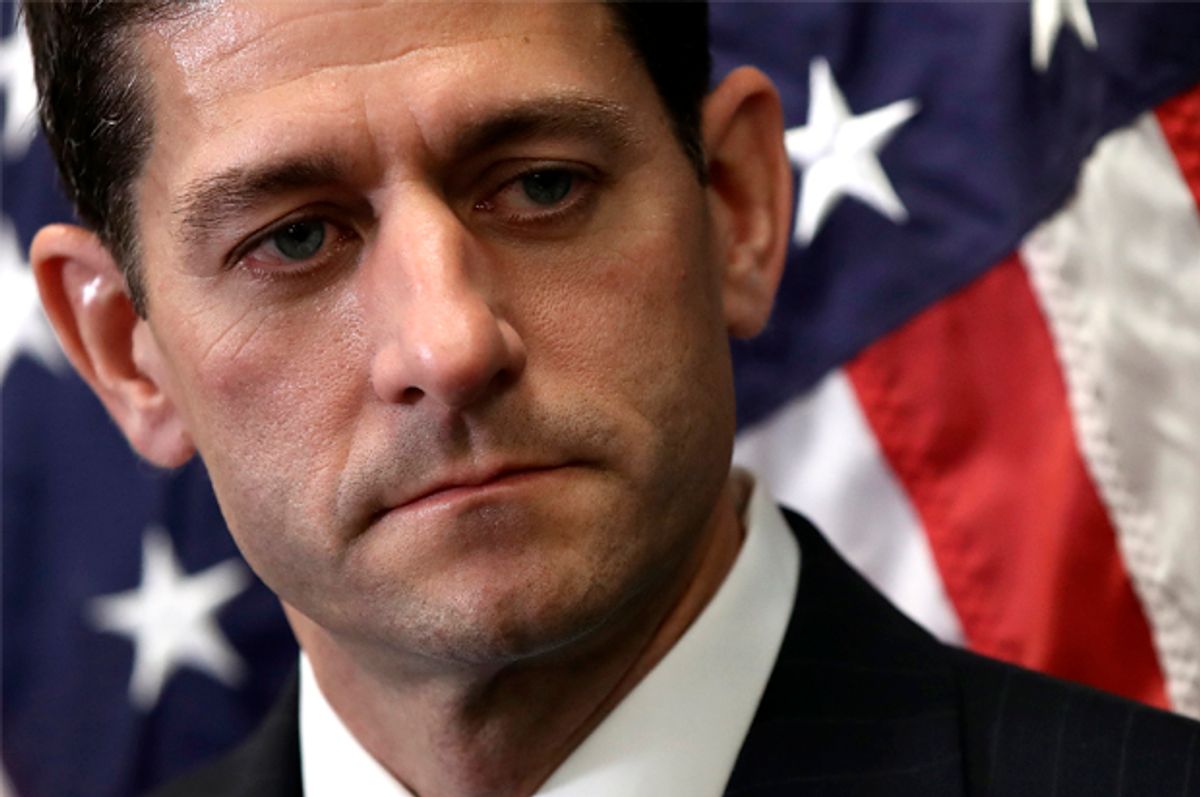When Donald Trump declined to say whether he would accept the outcome of the upcoming presidential election during this week's presidential debate, a torrent of condemnation came rushing down. Some of the most pointed rebukes of Trump’s repudiation of democratic norms came from members of Trump’s own party.
Sen. Mike Lee, R-Utah, called Trump’s position “frightening beyond my ability to describe” and said it “delegitimizes the entire process in a way that is really dangerous.” Sen. John McCain, R-Ariz., loser of the 2008 presidential election, said, “A concession isn’t just an exercise in graciousness. It is an act of respect for the will of the American people, a respect that is every American leader’s first responsibility.”
The executive director of the North Carolina Republican Party said he was “not aware of election results being optional.”
Some of the Republican criticism of Trump arrived from longstanding opponents of his within the party, and you can assign ulterior political motives to those condemnations if you like. But they nonetheless came out and repudiated their own party’s nominee for pursuing this massively irresponsible and dangerous course. But there’s one Republican who has remained determinedly quiet on the matter, the most powerful elected Republican in the country: House Speaker Paul Ryan.
Reporters tried to get Ryan to weigh in, but he gave them nothing. This steadfast silence is all part of his plan to spend the next couple of weeks simply pretending that his party’s presidential nominee doesn’t exist. Ryan’s endorsement of Trump remains intact, and his official position is still that Donald J. Trump should be the next president of the United States.
He just won’t say anything about Trump in public, even as his preferred nominee battles allegations of sexual assault and goes to war against the democratic system. Instead, Ryan is putting out statements calling for the repeal of Obamacare — something he can’t accomplish, it must be noted, without Trump in the White House.
As The Huffington Post’s Jason Linkins wrote, the reaction of the press to Ryan’s moral cowardice and abdication of political leadership has been to cast him as a victim of Trump who finds himself in this miserable situation by cruel happenstance rather than his own agency. During the Obama era, the Beltway press developed a “leadership” fetish that found expression in countless columns attacking the “dithering” president for playing golf while other stuff was happening in the world. Ryan, meanwhile, is treated as a sympathetic figure for hiding from the press and refusing to engage with the political crises manufactured by the presidential nominee he chose to endorse.
What’s particularly infuriating about all this is that pundits and reporters have spent years talking about Paul Ryan as someone who was naturally destined for a leadership role. When hyping him as a leader of men, pundits described him as a fantastically principled wonk who would not let the nasty business of politics get in the way of his core beliefs. “He is not terribly political,” wrote The Washington Post’s Chris Cillizza in a 2012 piece on Ryan’s ambitions, “and has a level of disdain for the sort of rank political calculations required of people who want to climb the electoral ladder.”
Now that Ryan is in a leadership position, he’s ducking every opportunity to truly lead. And he’s engaging in the sort of calculated political maneuvering we were told he disdains. Ryan is relentlessly promoting his own agenda and quietly distancing himself from Trump, while also refusing to rescind his endorsement in the hopes that he can minimize down-ballot losses and hang on to his job. For inhabiting this alternate political reality and fudging his stance on his party’s presidential nominee in service of his own ambition, Ryan is treated as a savvy, forward-looking leader of the GOP.
So Ryan will just keep on tweeting about Obamacare and tax cuts until the election is over. Then he will have to hope that no one remembers or cares that when other Republicans politicians were speaking out against the most dangerous major-party presidential nominee in American history, he chose to hide and say nothing.



Shares